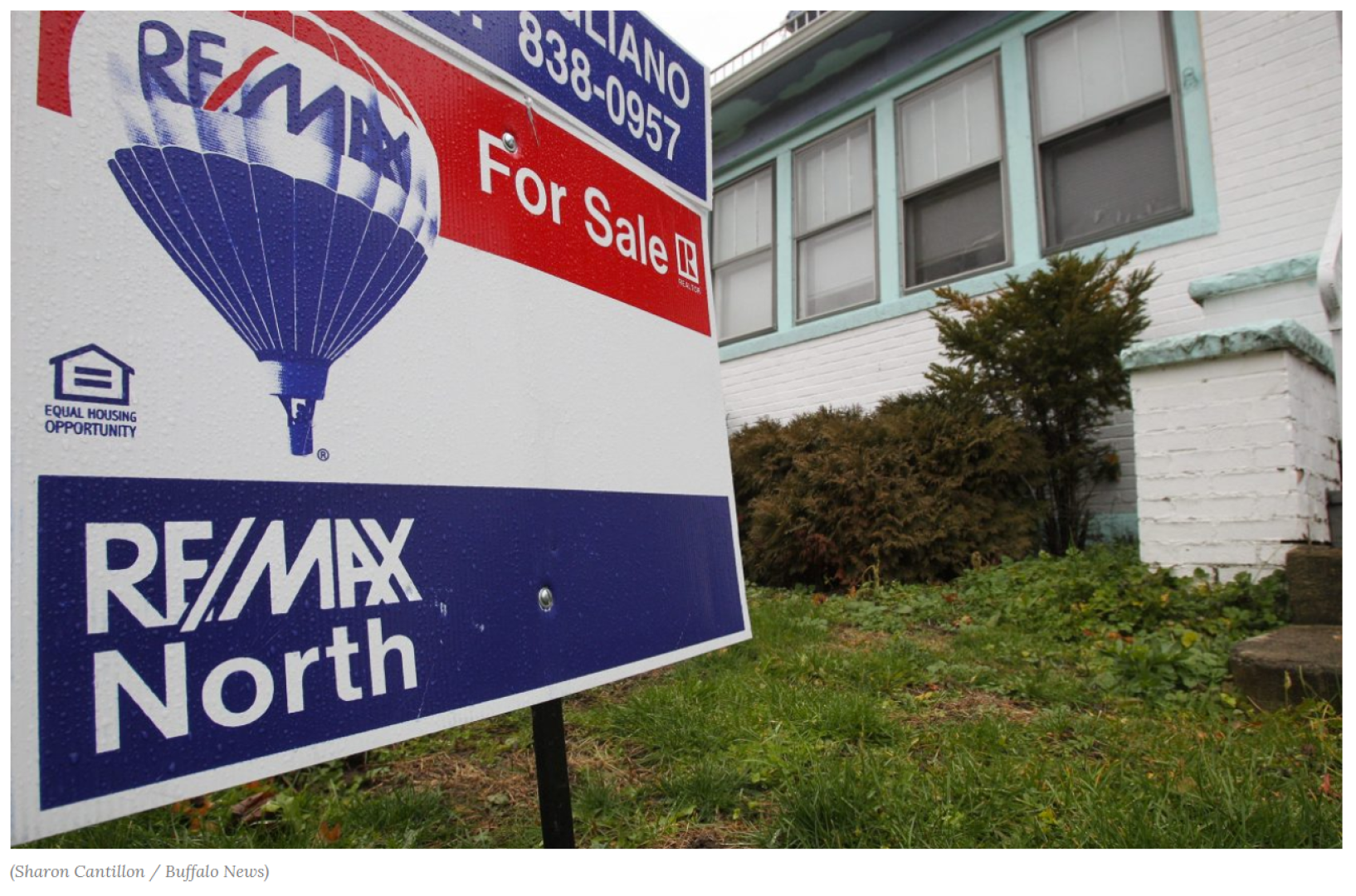News Take Action

Buffalo News: "Voluntary, subsidized 'inclusionary zoning' recommended for Buffalo housing"
| Date: | December 3, 2017 |
| Share: |
"Advocacy groups are glad some form of inclusionary zoning is included in the consultant's report, but would still like to a see a mandatory program – not a voluntary one."
By Susan Schulman | Published December 3, 2017 | Updated December 3, 2017
Inclusionary zoning is one of the tools a consultant is recommending Buffalo consider to help create affordable housing and increase economic and racial diversity in certain neighborhoods.
But the recommendation comes with caveats.
Inclusionary zoning should not be mandatory and the costs associated with it should not be foisted upon developers, according to czb LLC , the Alexandria, Va., consultant hired by the Brown administration to analyze Buffalo's housing market.
Instead, the city should consider a voluntary, government-subsidized program that could offer developers – on a case-by-case basis – cash subsidies as well as such incentives as tax breaks and height or density bonuses that allow more units in a building than are otherwise permitted under city zoning codes, the consultant's report says.
"The fragility of the Buffalo market means that any IZ policy must fully offset a developer’s reduced revenue stream to achieve the policy’s goal," the report states.
The alternative, said consultant Charles Buki, founder of czb LLC, could make development deals financially unfeasible, forcing developers to charge market rate rents so high that potential tenants skip over Buffalo and move instead to lower-priced apartments in the suburbs.
Inclusionary zoning calls for developers of higher-end market rate apartment buildings to include some units that lower-income people can afford.
The consultants recommend inclusionary zoning only for neighborhoods with the highest housing demand, where costs are rising, and where the population is generally wealthier and less diverse, with fewer minorities than in other Buffalo neighborhoods.
These are also the neighborhoods where the consultant is suggesting the city offer what would be a newly created inclusionary property tax exemption – similar to one that exists in New York City – to encourage mixed-income development.
Given the level of private development in Buffalo, the inclusionary zoning provisions suggested would not likely create a large number of affordable housing units, the consultant said. But the policy would create some units and also would help address the need for more income and racial diversity in what's now the city's highest-demand neighborhoods, according to the consultant's report.
"Even if developer costs are fully offset, inclusionary zoning has the potential to make no more than a minor dent in Buffalo's affordable housing need, owing to the still anemic rate of market-rate activity in which IZ must rely on for impact," the consultant said. "Nevertheless, creating mixed-income environments in the city's healthiest neighborhoods is an important outcome to work towards, and IZ can and should be one of many tools deployed in that effort."
Local advocacy groups concerned about rising housing prices in these Buffalo neighborhoods have been pushing City Hall to adopt a mandatory inclusionary zoning policy that would require developers – particularly those receiving tax breaks or other government subsidies – to set aside 10 to 30 percent of apartments in multi-unit, market-rate buildings as housing low-income renters can afford.
But Buffalo's development community has argued that while it supports inclusionary zoning goals, the specific policy outlined by advocacy groups would stifle market rate development and do little to create new low-income housing or integrate neighborhoods.
Dottie Gallagher-Cohen, president of the Buffalo Niagara Partnership, the region's major business organization, is among those opposed to what the advocacy groups are proposing. But Gallagher-Cohen said she supports the inclusionary policies outlined by the consultant.
"We would 100 percent support that – not mandatory, with offsets. That's the way to get things done," Gallagher-Cohen said of the consultant's inclusionary zoning proposals.
Gallagher-Cohen also likes the proposal to offer property tax incentives for creating mixed-income housing.
"Providing incentives not now available will make it more attractive," she said.
Gallagher-Cohen added that it's important that the czb LLC study documented the reality that Buffalo's affordable housing problem is predicated on low-incomes in a city with a high poverty rate, and not on inflated rents.
Advocacy groups are glad some form of inclusionary zoning is included in the consultant's report, but would still like to a see a mandatory program – not a voluntary one.
"We are happy to see it in the recommendations," said Sam Magavern, executive director of the Partnership for the Public Good, "It's good news for us that an outside consultant said 'Yes,' it's a good idea, it's appropriate for Buffalo to have some version of inclusionary zoning.'"
But Magavern's group recently issued its own housing strategies report, again calling for mandatory inclusionary zoning that would require 30 percent of apartments, in buildings with 10 or more units, to be set aside as affordable housing. The report mentions the possibility of the City of Buffalo offsetting some developer costs associated with inclusionary zoning, including tax incentives, but doesn't endorse any particular offsetting policy.
The Partnership for the Public Good's report also supports other activities mentioned in the czb LLC report, including community land trusts, something Magavern's group has helped develop in Buffalo's Fruit Belt neighborhood.
But while agreeing poverty and low incomes are top issues in Buffalo, Magavern said his and other advocacy groups think rising rents are a bigger issue than the consultant indicated. "I would say most think the rents are rising more quickly and severely than you might guess from reading the report," Magavern said.
And Magavern's Partnership for the Public Good also thinks Buffalo's housing strategy should go beyond the recommendations of czb LLC's report.
In particular, Magavern cited a need to improve foreclosure policies, and to address homelessness.
"Homelessness is sort of the worse outcome, and has a bad impact on the whole community," he said.